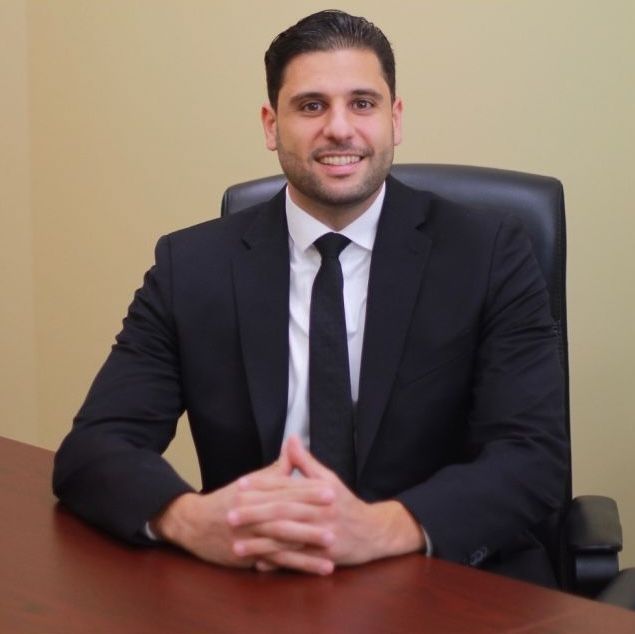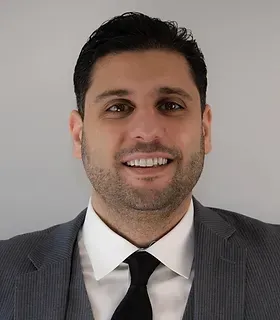ABOUT US

7+
Years of
experience
Championing justice for the underdog, one case at a time.
At Jalal Abdallah PLLC, we are committed to justice and fairness, prioritizing our clients’ needs above all else.
As a personal injury and criminal defense attorney, Jalal Abdallah fights relentlessly for the “little guy,” carrying on the legacy of legal giants like Clarence Darrow and William Kunstler. Our firm takes pride in representing underdogs, challenging powerful insurance companies, and holding governments accountable.
With a team dedicated to honesty, integrity, and justice, we stop at nothing to protect your rights and ensure your voice is heard.
Our approach
Jalal Abdallah is a passionate trial attorney who built his career on one powerful belief: everyone deserves a relentless advocate in their corner. Whether he’s taking on powerful insurance companies in personal injury cases or standing up to government prosecutors in criminal defense trials, Jalal brings an unmatched intensity and commitment to every client he represents.
Inspired by legal icons like Clarence Darrow and William Kunstler—both known as “Attorneys for the Damned”—Jalal proudly carries the torch for those who feel overlooked or outmatched by the legal system. From the moment he took the Lawyer’s Oath, he’s been driven to protect the rights of the “little guy” with a fierce determination to win.
With a deep understanding of the law and a results-focused approach, Jalal has earned a reputation as a fearless advocate in and out of the courtroom. He represents clients in a wide range of criminal defense and personal injury cases, including:
• Car accidents and truck accidents
• Slip and fall injuries
• Wrongful death claims
• DUI and drug charges
• Assault, theft, and other felony or misdemeanor offenses
When you hire Jalal Abdallah, you’re not just getting a lawyer—you’re gaining a fighter who will stand by your side, challenge the opposition, and push for the justice you deserve.

Our Expertise
Along with being a licensed attorney, Jalal is a state licensed insurance producer, holding licenses in the insurance lines of surplus insurance, property & casualty, title (real estate), life, accident & health. Jalal earned his BA from the University of Michigan-Dearborn, majoring in history. He then entered law school where he completed his studies at Thomas M. Cooley Law School, earning a Juris Doctorate (JD). Jalal is currently enrolled in business school at Walsh College of Accountancy and Business Administration and pursuing his Master in Business Administration (MBA). The knowledge Jalal has accumulated, during the course of his educational and professional licensing path, has provided him with the skills and versatility to service clients across the legal and business spectrum.
Our
Education
- University of Michigan-Dearborn -BA, (Major: History)
- Thomas M. Cooley Law School -Juris Doctorate (JD)
- Walsh College of Accountancy and Business Administration -MBA (Master in Business Administration)
professional licenses
- Member of the State Bar of Michigan
- Resident Insurance Producer of the State of Michigan -Property & Casualty -Life, Accident & Health -Title (Real Estate) -Surplus Lines
Professional Associations
- Member of the Wayne County Criminal Defense Bar Association
- Member of the The Michigan Association for Justice (MAJ)
- Member of the National Association of Criminal Defense Lawyers (NACDL)
FAQs
We understand personal injury claims can be overwhelming. As a leading personal injury and criminal defense firm in Michigan, we are committed to transparency, helping clients feel informed and empowered. We simplify the legal process, allowing you to focus on recovery while we pursue justice for you.
What do I do after an accident?
If you’ve suffered an injury in an accident, your top priority should be seeking medical attention. In the event that you aren’t immediately taken to the emergency room, it’s advisable to capture photos or videos of the accident scene and gather contact details from potential witnesses. It’s important to refrain from admitting fault or offering apologies to others involved, even if it may seem courteous. Any statements made following an accident can potentially be used against you if you decide to pursue a claim or legal action in the future. If you suspect someone else might be responsible, it’s a good idea to arrange a complimentary consultation with an attorney to explore your available options. Typically, the initial consultation comes at no cost.
How do I know if I have a case?
You don’t have to decide this on your own. Contact a lawyer for a free consultation to discuss your situation in detail. The lawyer can tell you who you can sue and what you can expect to recover based on the accident facts and your state’s laws. In most cases, if someone acted carelessly and caused your injuries, you likely have a case. However, it’s not as straightforward as it may seem, which is why consulting a lawyer is crucial.
Do I have a case if I do not feel hurt?
Even if you don’t feel injured right after the accident, it’s possible that you still have a valid case. The body’s response to a traumatic event like a car crash can initially mask pain due to the adrenaline rush. You might begin to experience significant pain or develop symptoms later on. It’s a wise decision to consult a doctor, even if you don’t feel immediate, intense pain, because some of the most serious injuries can emerge over time.
How long do I have to file a personal injury case?
The timeframe for taking legal action depends on your state’s statute of limitations. For example, in Michigan you have to file a personal injury protection claim within one year of the date of the accident, and for bodily injury claims within three years of the date of the accident. It’s crucial to verify the specific time limit in your state to avoid inadvertently forfeiting your rights. While there are a few exceptions to the statute of limitations, they tend to be quite narrow, so it’s unwise to assume they apply. From a practical perspective, it’s advisable to initiate a claim as soon as possible while the evidence is still fresh. This will aid in establishing liability and the extent of your damages.
What should I do if an insurance adjuster calls me?
Avoid speaking with an insurance adjuster representing another party involved in the legal proceedings. Despite appearing friendly and empathetic, their primary goal is likely to extract statements from you that could lessen or absolve their insured’s liability. Instead, instruct the insurance adjuster to get in touch with your attorney, if you have one, or contact your own insurance company if you don’t have legal representation. The same principles apply if an attorney representing someone else reaches out to you.
What damages are available in a personal injury case?
The primary category of damages is called compensatory damages, which can be further categorized into economic and non-economic damages.Economic damages are grounded in concrete and relatively objective expenses and losses, such as medical bills, lost income and future earning potential, property damage, and the costs of anticipated future treatment. Non-economic damages are more subjective in nature and encompass elements like pain and suffering, emotional distress, and the loss of enjoyment in life. To be awarded damages, they must be reasonably quantifiable rather than speculative. In cases where the defendant’s actions are particularly egregious, you might have the opportunity to seek punitive damages in addition to compensatory damages. Punitive damages are designed to penalize the defendant and deter similar behavior. While punitive damages are seldom granted, they can be substantial. However, there are constitutional limits on how much they can exceed compensatory damages.
How much is a personal injury case worth?
The amount you can expect to recover in your case hinges on the specific details of your injuries and can only be determined after a thorough investigation. You can seek a rough estimate from personal injury attorneys in your vicinity, based on their experience with similar cases. Nevertheless, it’s essential to understand that attorneys are not allowed to guarantee a specific recovery amount or predict case outcomes. Any estimate you receive is likely to be approximate and conditional. Another factor to consider is how much you can realistically collect, which may be influenced by factors such as the insurance coverage of the parties at fault, their assets, and your own insurance situation.
How long will it take to settle my claim?
The truth is, very few personal injury cases actually make it to trial. The vast majority are resolved through a settlement with the defendant or their insurance company. Unfortunately, predicting the timeframe for reaching a settlement is challenging and can vary considerably. Generally, claims involving severe injuries and substantial amounts of money tend to take longer to settle because insurers often put up a stronger resistance. If a case is intricate or liability is unclear, it can also prolong the settlement process. Bringing in an attorney can sometimes prompt an insurer to present a fair offer earlier in the process, as they recognize that they are less likely to exploit your situation.
What is a release in settlement?
A release is a document you sign when you receive a settlement payment. In essence, it signifies that you’re relinquishing all your legal claims related to the accident against not just the defendant you sued or who settled, but also any other potential defendant, even if they weren’t part of the legal proceedings. It’s important to note that if you’re married, your spouse may also be required to sign the release.
How long will it take to get my check?
You shouldn’t anticipate a significant delay between reaching a settlement and receiving your settlement check. Most insurance companies aim for a swift closure of their case files, so they typically dispatch the check within a week or two of your agreement. The exact timing may be contingent on whether the insurer waits for your signed release before sending the check. After receiving the check, if you have an attorney, they will prepare a settlement statement. This document outlines the total amount received and deducts the attorney’s fee, court costs, reimbursements to your insurers (as applicable), and any other necessary deductions. You will review and sign this settlement statement, and subsequently, your attorney will issue you a check for the remaining balance.
How do I pay for a lawyer in a personal injury case?
Describe the item or answer the question so that site visitors who are interested get more information. You can emphasize this text with bullets, italics or bold, and add links.

